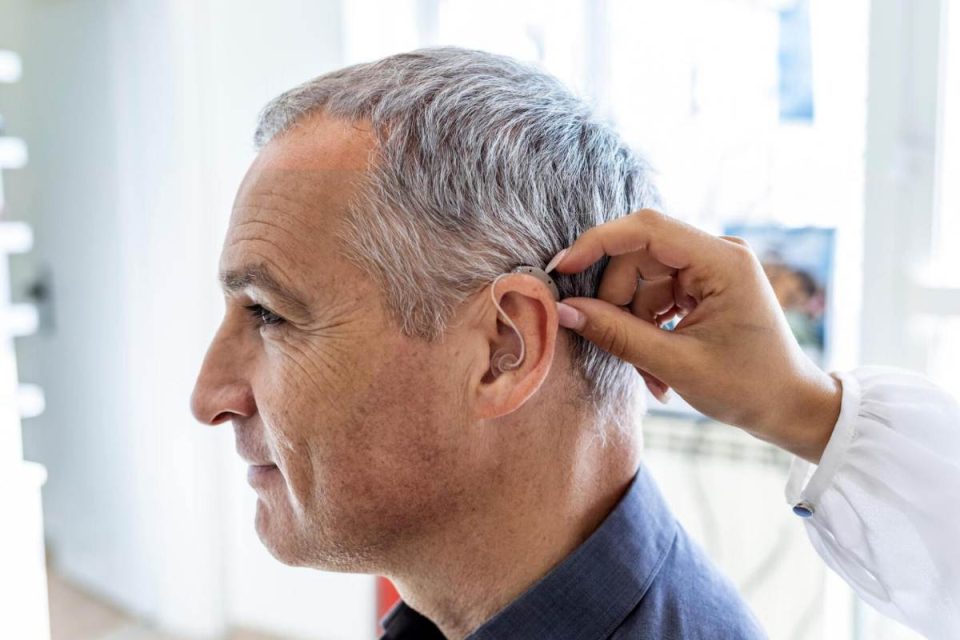Table of Contents
Introduction:
Hearing Tests for Seniors: For many, the phrase “hearing test” conjures up images of sound booths but for seniors, facing mobility challenges or simply preferring the comfort of their own space, this traditional setting can present a challenge. Thankfully, technology has brought advancements that offer a quieter, more personalized approach: the home hearing test.
The British Society of Audiology (The BSA) Procedure Protocol states that ambient noise below 35 decibels is required for a gold-standard hearing test. I would argue that a quality hearing test can be achieved in a quiet home. This opens up a world of advantages for seniors, eliminating the stress and inconveniences often associated with traditional hearing tests. While this may sound trivial to people with great mobility. Seniors without mobility can find it challenging to arrange transport for their hospital appointments. In this article, we’ll explore the numerous advantages of opting for a home hearing test for seniors.
No Waiting List:
One of the most significant advantages of choosing a home hearing test for the elderly is the elimination of a lengthy waiting list. Long waiting lists for clinic appointments can leave seniors feeling neglected and frustrated.
Traditional clinic-based tests often come with extended waiting periods, leaving seniors grappling with hearing issues without immediate attention. Imagine, instead, a scenario where a professional audiologist arrives at your doorstep, ready to address your hearing concerns promptly. Home hearing tests remove the burden of scheduling, travelling, and waiting rooms, offering immediate attention and a quicker path to solutions. This swift response is particularly critical for seniors who may be experiencing gradual hearing loss and need timely intervention to prevent further decline.
At-Home Hearing Aids Programming:
Another remarkable advantage of home hearing tests is the ability to program hearing aids in the natural environment of one’s home. Creating a comfortable and quiet setting is crucial for accurate results during the hearing test. Adjusting these delicate devices requires a quiet environment, and what better setting than the familiar surroundings of your own home? With the audiologist present, adjustments can be made in real-time, taking into account the specific background noise you encounter daily. This personalized approach ensures optimal performance and eliminates the frustrations of adjusting to a new device in a potentially distracting clinic setting. However, once established, the same environment becomes the perfect place for adjusting and programming hearing aids. Seniors can experience a more personalized and effective hearing aid adjustment, enhancing their overall hearing experience.
Convenience:
For seniors with mobility limitations, a trip to the clinic can be an ordeal. Stairs, crowded parking lots, and navigating unfamiliar spaces can add unnecessary stress to an already anxious situation. Home hearing tests eliminate these hurdles, bringing the entire process to your doorstep. This convenience is invaluable, empowering seniors to take control of their hearing health without sacrificing comfort or safety.
Personalized Care:
The familiar ambience of home does more than just offer comfort; it allows for a deeper level of personal care. With minimal distractions and the undivided attention of the audiologist, seniors can undergo additional tests that wouldn’t be feasible in a bustling clinic setting. Speech recognition in noise tests, for example, can accurately assess how well you hear in everyday situations like noisy restaurants or family gatherings. Similarly, tinnitus evaluations can be conducted in the quiet of your home, providing a more accurate picture of this often-challenging condition. The audiologist can dedicate more time to understanding the specific needs of the individual, resulting in a tailored treatment plan.
Conclusion:
Home hearing tests aren’t simply a convenient alternative; they represent a shift towards personalized, patient-centered care for seniors. By removing the barriers of traditional settings, these tests empower seniors to prioritize their hearing health in a comfortable, familiar environment. From eliminating wait times to allowing for in-depth testing, home hearing tests paint a brighter picture for senior hearing care, one where convenience, comfort, and personalized attention create a harmonious path to better hearing.
So, if you’re a senior considering a hearing test, remember that sometimes the best solutions come knocking at your door. Embrace the advantages of a home hearing test and experience the sound of improved hearing in the comfort of your own space.

